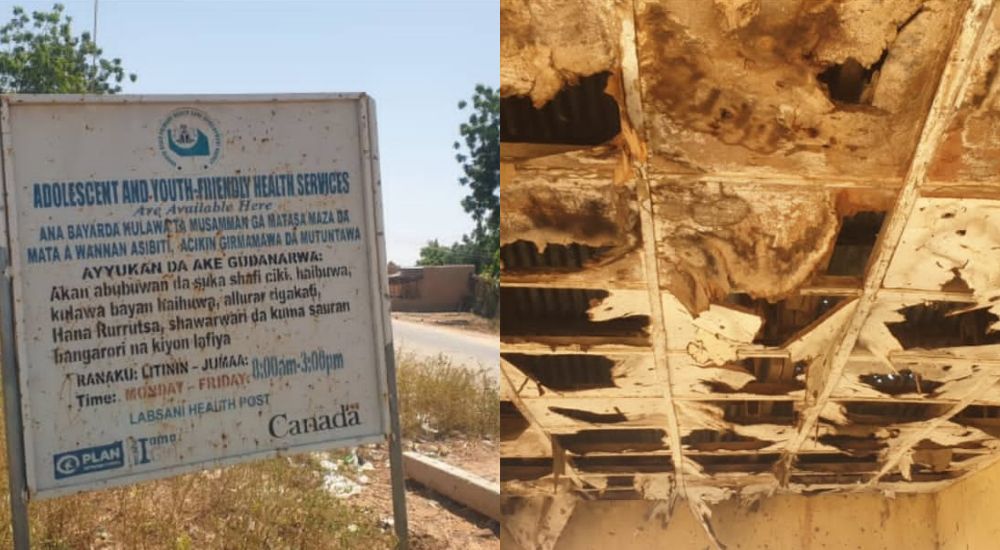In Sokoto, Rural Residents Face Dire Conditions Due To Abandoned Healthcare Facilities
Ten years ago, Labsani Health Post, a community healthcare facility in Labsani, Tangaza Local Government Area of Sokoto State was once a beacon of hope for its residents.
The facility built in 2005 by Attahiru Bafarawa’s administration was projected to provide access and affordable medical treatment as well as other healthcare services to the community and nearby neighbours like Talba, Saminaka, Gohono and Barka Tube.
Advertisement
The architectural structure of the health post includes a waiting room, a consultation corner where both nurse or visiting doctor can attend to outpatients and a mini pharmaceutical store-room where essential drugs were kept for free to administer for treatment.
But all these amenities only served the communities for a while before it was ruined due to lack of maintenance by the successive governments. Malam Aliyu Lamba who is the community leader recounts how the facility had helped the residents in dire need for quick medication.
“We enjoyed the facility when it was in good shape and only lasted for five years before it was abandoned. But when it was functioning. It really helped our pregnant women and children to get quick medication intervention without traveling too far to the Local Government Headquarters in Gidan Madi town,”says the 65-yr-old farmer in an interview with THE WHISTLER.
When our correspondent visited the health facility in mid October, 2023, the stark reality of its dilapidation was impossible to ignore as the current state of the community’s only health facility has since changed to a state of neglect.
Advertisement
Its decrepit state is unmistakable, with roofs that threaten to collapse and medication stores have been occupied by reptiles while once time medical equipment have now rotted away.
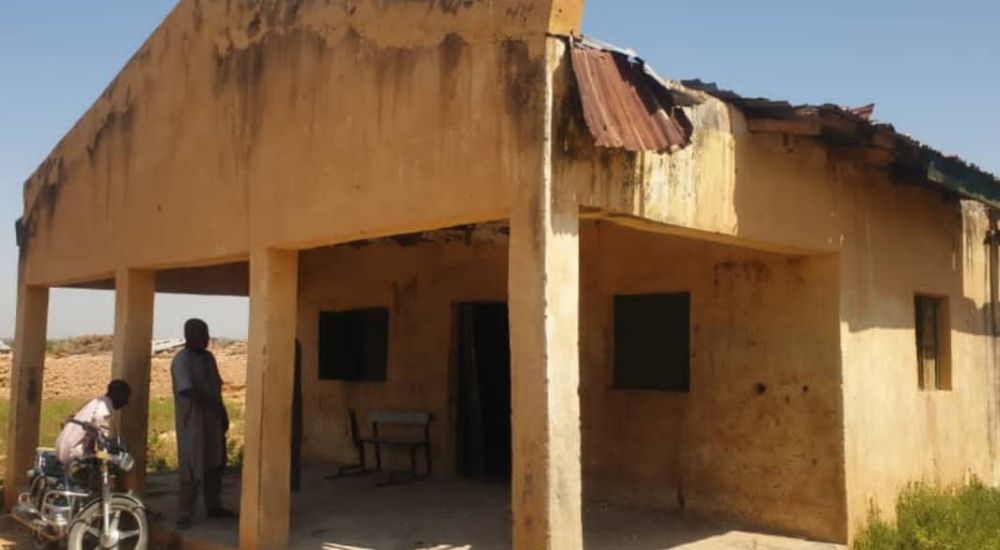
Health Facility Now Election Centre
Lamba said the health post now serves as a political arena and electoral center during any electioneering process.
“The last time the election was conducted, it was the facility we used to host electoral officials where people’s votes were counted.” Lamba further recounts.
Advertisement
In the face of this dire situation, many residents said they have no other option but to embark on a challenging journey to the General Hospital located at Gidan Madi, headquarters of Tangaza Local Government Area of the state.
“Oftentimes, we have to embark on a long kilometer journey on foot just to access essential healthcare at Gidan Madi town,” Garba Hasimu lamented.
“Our people regularly face health challenges like malaria, typhoid, hypertension, malnutrition and fever and yet there are no medical or healthcare personnel visiting us because of the lack of healthcare facilities.”
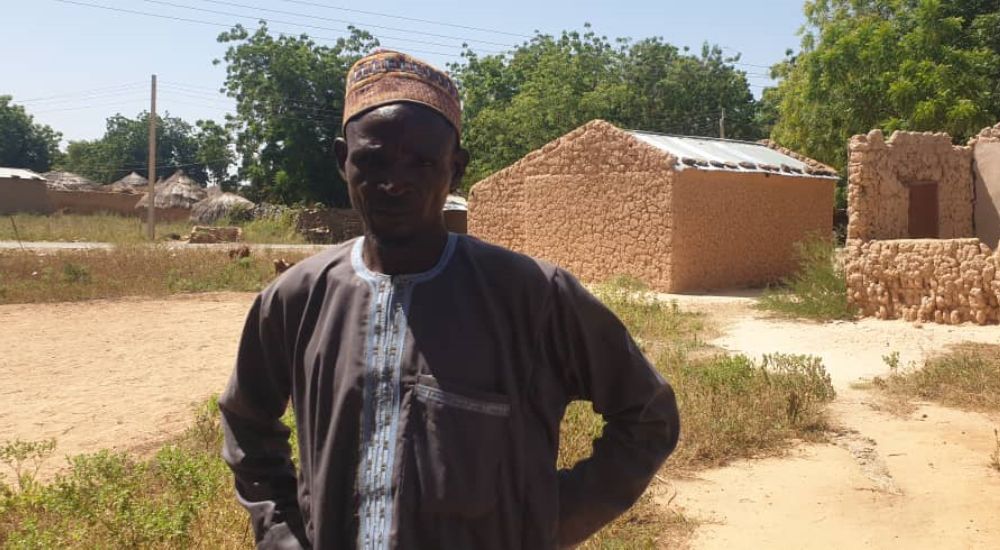
Zanaib Abu, a 29-year-old housewife, recalled how some pregnant women within the communities have relocated in search for proper health care attention.
“Most of our pregnant women have to leave the community when approaching their Delivery Date (DD), due to lack of medical attention while those who stay have the fears that tragically affected their expectation for safe delivery.” Zanaib said.
Advertisement
Dilapidated Health Facilities Everywhere
The poor access to quality healthcare in some communities in Tangaza Local Government Area of Sokoto has exposed residents to vulnerabilities including disease outbreaks.
THE WHISTLER’s findings revealed that the state has a total of 800 Primary Healthcare Centers spread across the twenty-three local government areas of the state.
Infant deaths have become a repeated experience for some families in these communities as they lack healthcare facilities while forcing pregnant women to travel long distances to receive healthcare in neighbouring areas has become the daily routine.
During a visit to Kalanjeni village where a health clinic was located, THE WHISTLER observed the dilapidated building with broken ceilings, windows as well as damaged windows and hospital beds while most of the outpatients were being attended to outside the building.
A community Health Extension Worker, Saidu Ahmed said the clinic is only rendering ‘skeleton’ services due to lack of infrastructure and medical facilities for treatment of the out-patients visiting the clinic on a daily basis.
“We only stay outside the building to attend to our patients like prescribing drugs for any outpatients that are visiting the clinic because the building is not conducive at all.” Saidu explained.
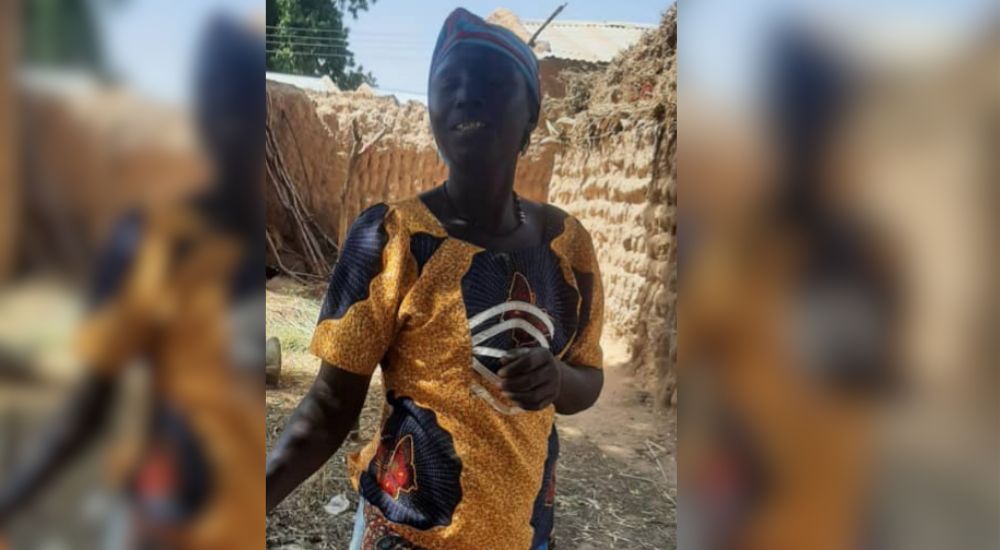
Also, at Primary Healthcare, Kaura, THE WHISTLER observed that the facility was well built but lack of health workers to attend to the multitude of out-patients has impacted negatively on the health of the community.
Mustapha Kaura, a Health Extension Worker attached to the facility said only three health personnel were assigned to attend to the medical needs of residents.
“We have a routine of large numbers of outpatients visiting this healthcare center either coming for treatment of various kinds of ailments or presenting their children for routine immunization.
“Aside from the shortage of medical personnel, we also don’t have the essential medical equipment and drugs to work with.” Mustapha told THE WHISTLER.
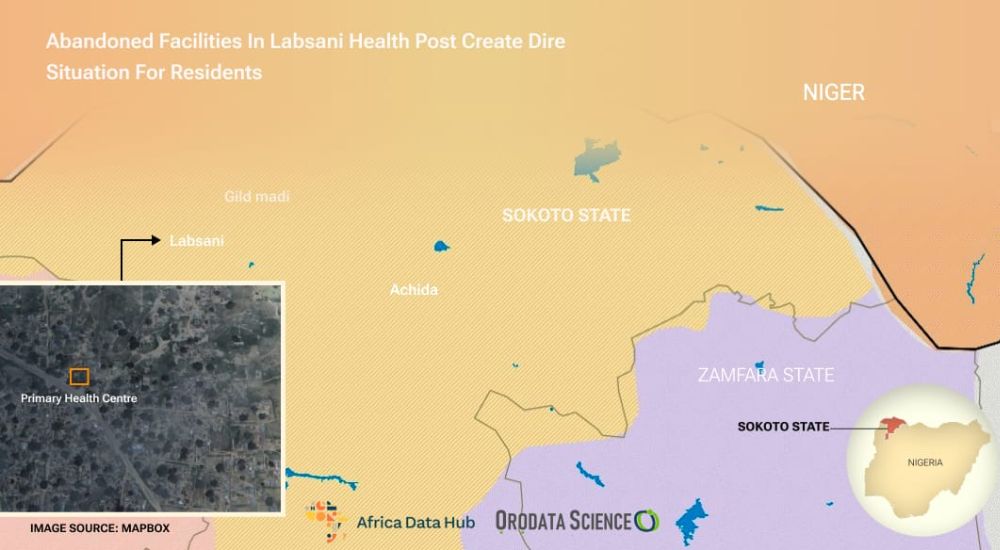
Bogus Budget, Little Impact
Since 2020 to date, budgetary allocation to the health sector in the state has been on the rise, yet, there is little attention accorded to improve primary health care services in the rural communities.
In 2020, for instance, the state budgeted N21.9 billion for the health sector representing 11 percent of the total budget. In 2021, the sector got N17 billion- representing 17% of the total budget, in 2022, the health budget was put at N28.8 billion while in 2023, the Health sector got N31 billion.
According to the report titled Post-Pandemic Health Financing by State Governments in Nigeria- 2020 to 2022, released by ONE Campaign, only Kaduna and Sokoto met the 15 percent African Union health allocation target between 2020 and 2022.
Despite these efforts, shortage of staff, essential drugs, and dilapidated structures at most healthcare facilities have been a nightmare for rural dwellers in need of healthcare.
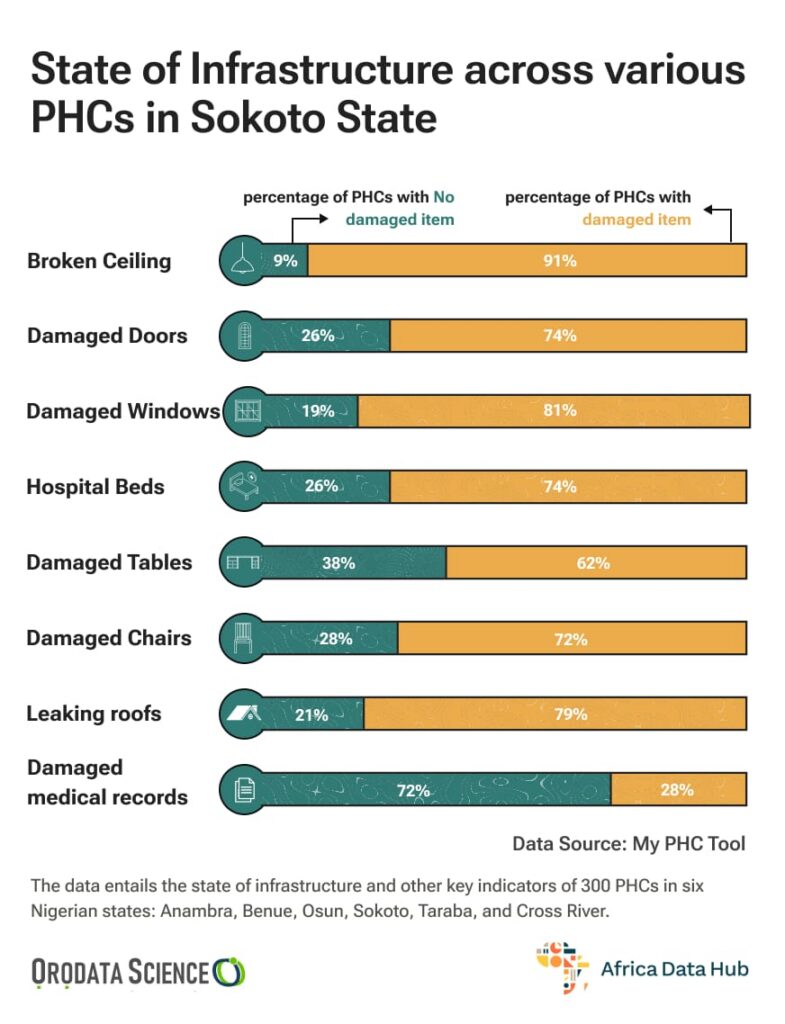
We’re Doing Our Best – Official
Bello Garba Muhammad, Executive Secretary, Sokoto State Primary Healthcare Agency, whose institution oversees the primary healthcare system in the State, admitted that the dilapidated health facilities were abandoned by the immediate past administration for reasons best known to officials in-charge.
“These structures have been there for the past ten years. But there are about 800 Primary Healthcare Centers across the state and the present administration has indicated commitment to put all these centers in good and in better conditions.
On why there have been absence of medical practitioners at the centers to attend to patients, Bello said PHCs are not designed to be run by doctors but midwives, community health workers and community health officers (CHO). “But in the case of complications we have referral cases that is why all facilities have ambulances,” He said.
When asked about the nonfunctional ambulances in some health facilities, he admitted that the ambulances were not functional because of lack of maintenance.
“Some are broken down because they have been there for more than ten years and the maintenance culture in Nigeria is poor with more than 300 ambulances. How do you expect all of them to be in good shape? They were bought around 2010.
“But they are all moved to somewhere now for renovation and repair. We’re doing our best as an agency and we also appreciate the efforts of developmental partners like UNICEF, World Health Organisation, USAID, Dangote Foundation among others.” Bello said.
This Story was produced for the Frontline Investigative Programme and supported by the Africa Data Hub and Orodata.


